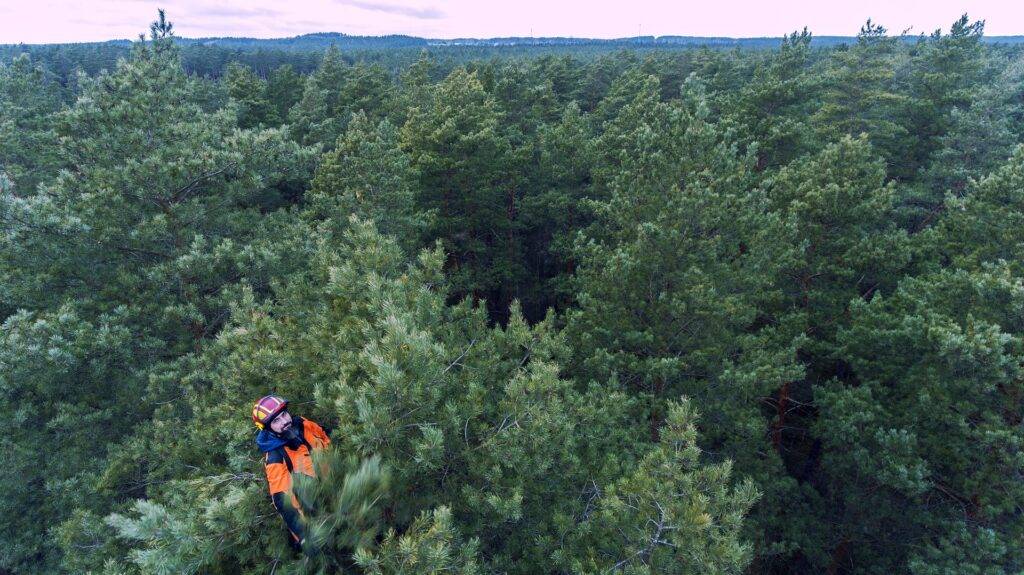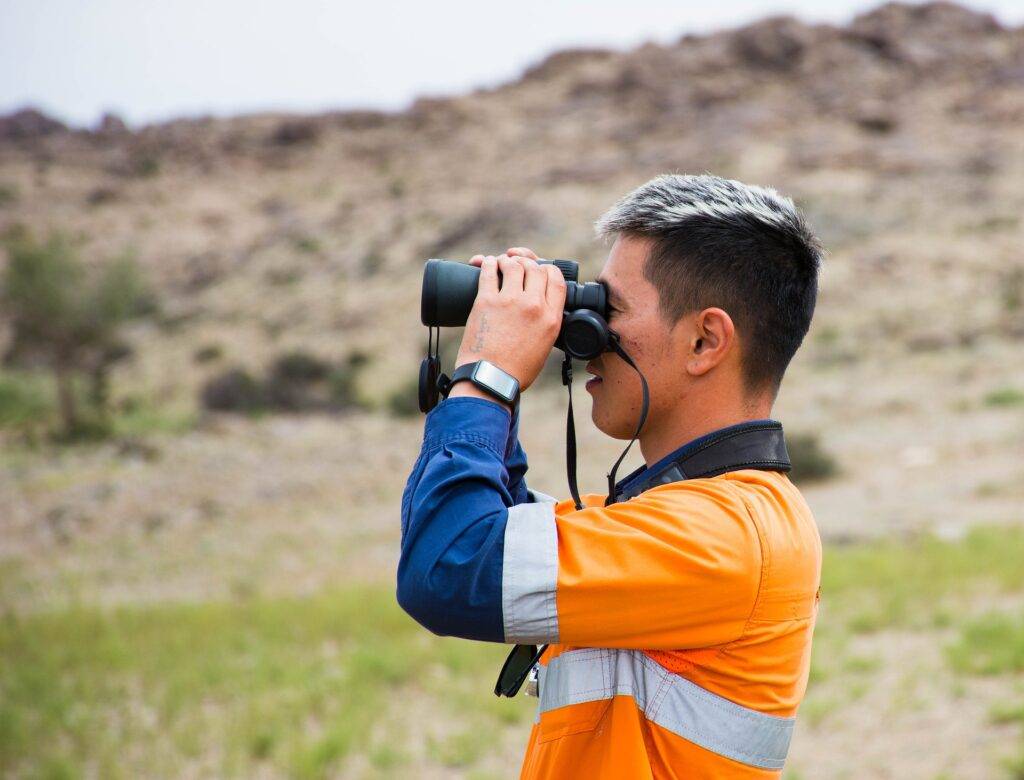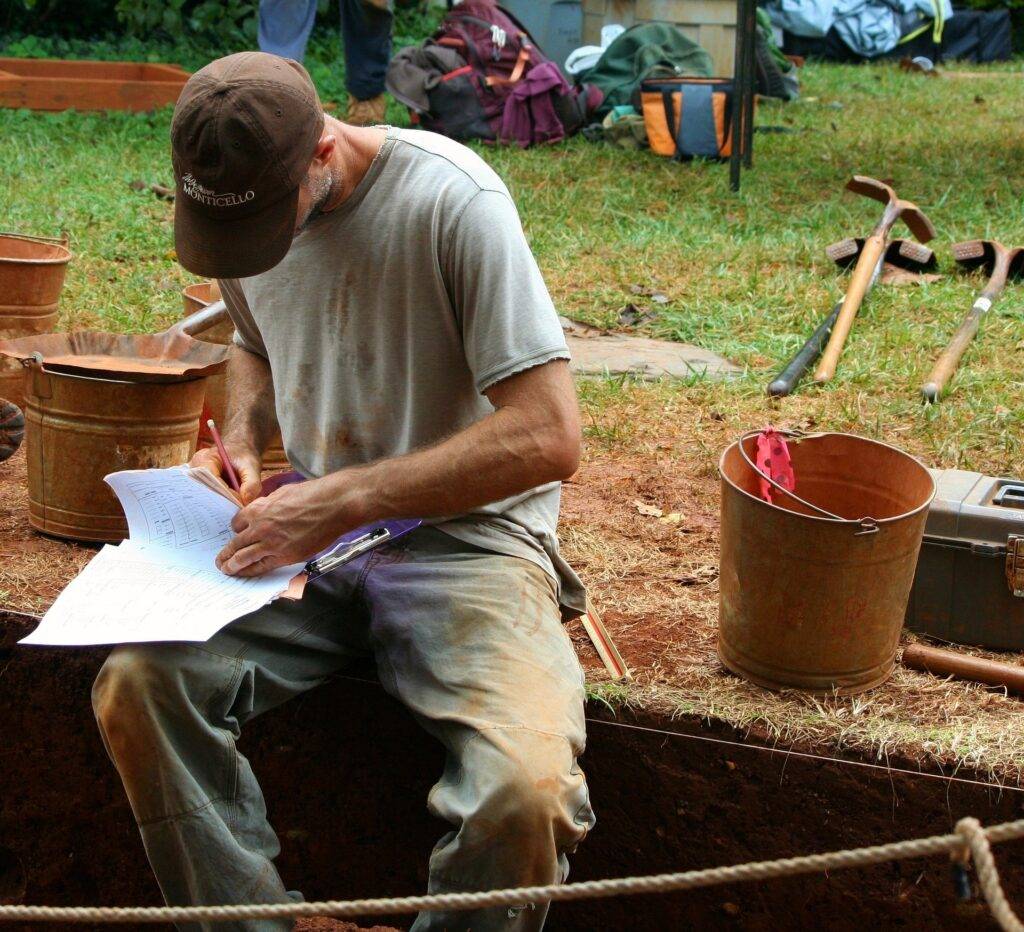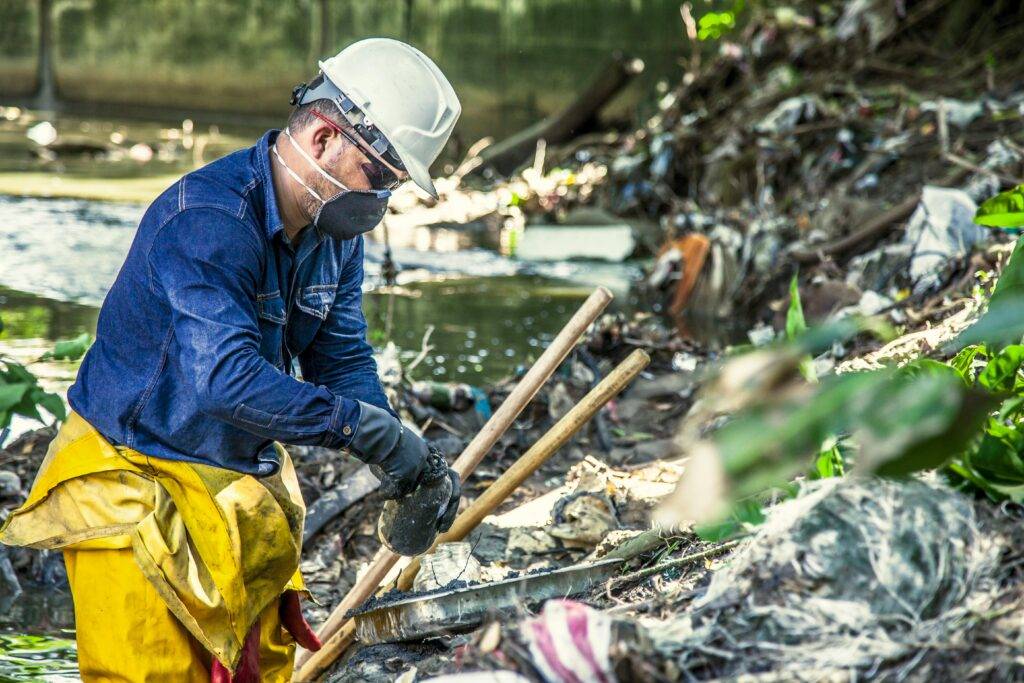Nature Recovery Career Pathways
Guidance on the variety of opportunities in the Nature Recovery sector.

Welcome to your comprehensive guide on career pathways into the growing field of nature recovery. Whether you’re a novice looking to start a new career or a seasoned professional aiming to upskill, this guide offers a clear roadmap to a rewarding career in nature recovery.
With one in six species at risk of extinction in Great Britain and the declaration of a climate emergency by the West of England Combined Authority the immediate need for nature recovery is evident.
The region consists of both urban and rural areas, including ecologically important ancient woodland. A key focus is on ways for natural habitats to be expanded, improved and better connected.
Nationally, land restoration, reforestation and agricultural improvement could create as many as 81,000 jobs highlighting the growing demand a skilled workforce in this sector.

What is Nature Recovery?
Nature recovery includes a wide range of jobs and skills that help to restore, regenerate, and reconnect our natural environment. In order to regain the natural habitats that have been lost across the West of England there are a variety of skills required. These include planting more trees to capture carbon and reduce climate change, cleaning our waterways to support biodiversity, and creating and improving the habitats needed for wildlife species to thrive.
There are a wide range of jobs required for nature recovery. These can vary from evaluating local planning developments to make sure they do not negatively impact wildlife, to conducting surveys outdoors to monitor species in the local area. Nature recovery requires skills in a variety of other important areas too, such as community outreach, education, and project management.
Why get into Nature Recovery?
You would be directly helping to combat climate change by helping trees, plants and natural habitats to grow and thrive. This would also help to preserve species and animals at risk of extinction.
You would also be helping to create safer conditions for wildlife to flourish and for people to enjoy nature, promoting better health and wellbeing and having a positive impact on the environment.
The demand for nature recovery skills will grow as they are essential to fulfilling both regional and national commitments to protect species from decline and restore natural environments.
How to find the right course for you
If you are looking to start afresh in the nature recovery industry, volunteering, work experience, apprenticeships and technical education are all good routes to exploring new careers.
Option 1: University and Degree Apprenticeships
- Eligibility: 18+
Cost: Loans available to cover study. In case of degree apprenticeships, learners are paid (rates of pay vary)
Length: Varies depending on level and subject area but typically 3-5 years.
Benefits: Gain an in-depth knowledge and understanding of issues in this sector and network with professionals.
You can explore the variety of courses available on UCAS.
Option 2: Apprenticeships and Technical Education
- Eligibility: 16+
Cost: Free. In case of apprenticeships, learners are paid (rates of pay vary)
Length: Varies depending on level and subject area but typically 1-5 years.
Benefits: Combines real work with training and study, where you get to put skills into practice.
You can explore the variety of courses, apprenticeships and technical education on the iFATE Occupational Maps. For local support and guidance, contact the Western Training Provider Network.
Option 3: Work Experience or Volunteering
Arranging a work experience placement or volunteering is a great way to get a sense of the industry as well as build skills, gain experience and grow your network.
Professional organisations supporting different industries often provide advice on gaining work experience (look for links to ‘Professional and Industry Bodies’ at the bottom of this page). Alternatively, head to our Skills Connect Directory for a list of local green volunteering opportunities.
If you have experience in a relevant role such as a Town Planner or a Educator and want to widen your skillset to include other nature-based skills, there are lots of short courses available to you. Below are some examples of common types of training.
Option 1: Skills Bootcamps
- Eligibility: 19 years+
- Cost: Free
- Length: up to 16 weeks (part-time/flexible courses to help fit around commitments)
- Benefits: Great for upskilling and/or broadening your skillset to support progressing your work opportunities, often a fast-track to an interview.
Search for a relevant bootcamp, or read the stories of others who have completed them.
Option 2: Further Training or Continual Professional Development (CPD)
- Eligibility: Various
- Cost: Various
- Length: As little as a few hours, up to weeks or months depending on the subject.
- Benefits: Great for keeping up-to-date on industry standards and developments, and developing new skills.
If you are unsure which areas of nature skills are for you, why not try to the quiz by Green Jobs for Nature to help you understand the areas of the nature recovery that might be suited to you and your interests.
You can also contact our Skills Connect Advisors who are happy to talk through the different options available to you
Different Sub-Sectors in Nature
A career in Ecology opens the door to fascinating roles dedicated to studying and safeguarding our local ecosystems, biodiversity, and natural resources. From field research to hands-on conservation and environmental management, these careers blend scientific expertise with real-world impact. Discover how you can make a difference—visit the Chartered Institute for Ecology and Environmental Management to learn more.
Explore a range of training providers in the West of England offering training and volunteering opportunities in the different areas of:
A career in farming, land management or agriculture offers diverse and rewarding opportunities, from preserving and enhancing natural landscapes, cultivating crops or raising animals to pioneering sustainable practices that protect our environment.
The industry increasingly relies on modern technology and innovative methods to ensure effective management and sustainability, with a variety of roles spanning engineering, technology, science, research, and business. Discover how you can make an impact—visit The Institute for Agriculture and Horticulture for more information.
Explore a range of training providers in the West of England offering training and volunteering opportunities in the different areas of:
Forestry and arboriculture offer diverse careers focused on trees: Forestry involves the large-scale cultivation and managing of forests and woodlands, while arboriculture centres on the care and management of individual trees in urban areas, parks, and gardens. For more information, visit the Institute for Chartered Foresters.
Explore a range of training providers in the West of England offering training and volunteering opportunities in the different areas of:
Public Engagement offers an exciting range of roles where you can inspire others to support and protect nature. From providing green education to running wellbeing programmes out in nature. If you're passionate about connecting people with the environment and want a career that makes an impact, why not explore Environmental Communication pages on the Green Jobs for Nature and the Conservation Careers websites to find out more.
Explore a range of training providers in the West of England offering training and volunteering opportunities in areas of Public Engagement.
Green Infrastructure roles look at addressing how our urban spaces can preserve and enhance nature whilst also support how we live and adapt to a changing climate. Urban Planners and landscapers are amongst the different roles that will look to design and implement nature-based solutions as well as sustainable solutions for new developments.
Explore training providers in the West of England offering training opportunities in Green Infrastructure.
Training Opportunities
Explore training providers offering opportunities in nature-based skills areas such as:
Undecided? View all the training providers in our directory offering nature-based options in the region.
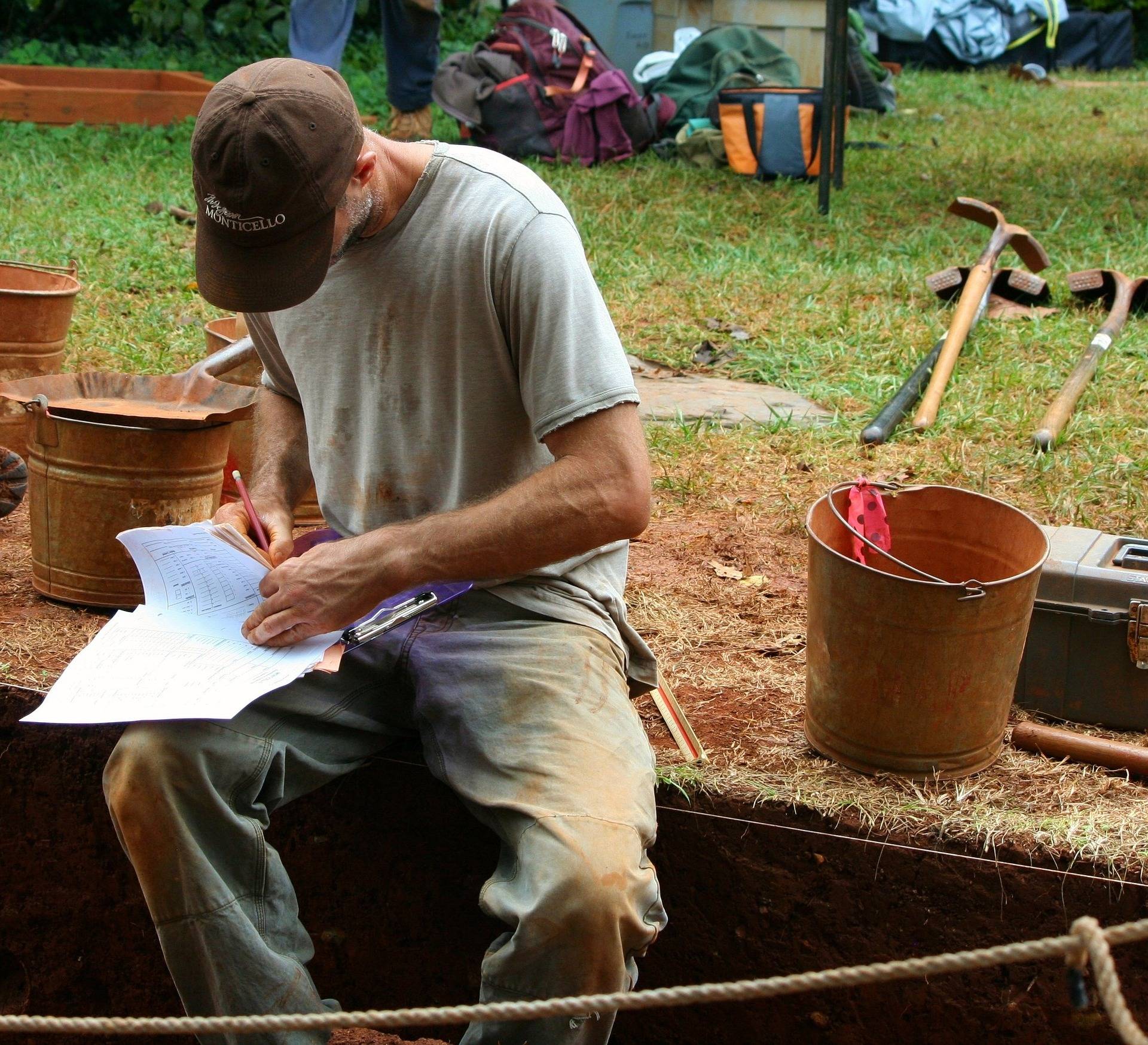
Careers in Nature
Explore some of the different careers in nature. There are different jobs for a variety of skills and subject areas. Have a look at some of the examples below.
Finding Support
Professional organisations and websites offer industry specific support, such as career advice, training, membership schemes, networking opportunities, as well as support with industry regulations or developments. Here are some websites and organisations dedicated to the Nature Recovery sector:
Green Jobs for Nature is a offers insights in the different careers in nature as well as information and advice around how to apply for jobs and where you could work.
Green Careers Hub is a website offering information and opportunities around green skills, jobs and careers.
Conservation Careers is a website dedicated to the variety of roles in conservation, braling them down so you can explore the skills and opportunities of the different areas.
Choose Landscape website offers lots of advice and resources for exploring the Landscape sector.
Professional Bodies
Institute of Chartered Foresters – includes detailed information and advice for people interested in getting into forestry.
Tree Council – inspire & empower organisations and communities to get invovled in tree conservation. Including a podcast Life on the Hedge
Chartered Institute of Ecology & Environmental Management (CIEEM) provide detailed career information for people interested in Ecology and Environmental Management
Chartered Institute of Water & Environmental Management – Dedicated to improving water & environmental management for the benefit of the public, including training opportunities.

Talk to a friendly advisor
Feeling overwhelmed or not sure where to start? We’re more than a website, we have real people waiting to help with all your skills, training and career needs.


